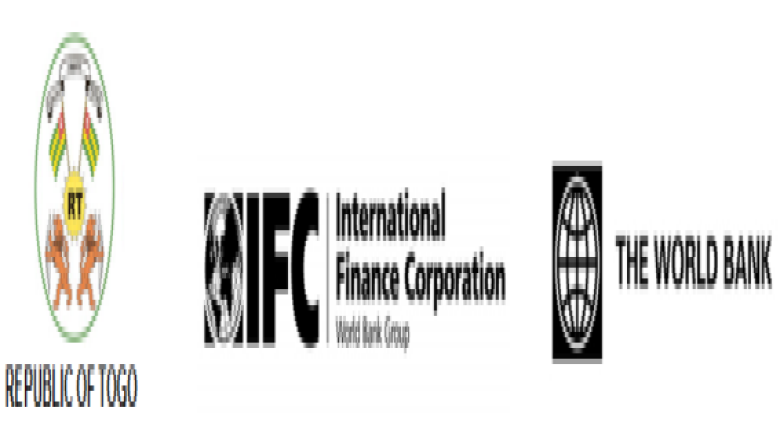
LOME, February 28, 2014—A high level regional workshop on the World Bank Group's Women, Business and the Law project which began on February 27 here in Togo, concluded with renewed commitment to gender parity today. Eleven African economies participated in this event: Benin, Burkina Faso, Burundi, the Republic of Congo, the Democratic Republic of Congo, Côte d’Ivoire, Guinea, Mali, Niger, Senegal, and Togo.
The joint World Bank and IFC project, Women, Business and the Law 2014: Removing Restrictions to Enhance Gender Equality, finds that Sub-Saharan Africa is the region that has reformed the most over the past 50 years. Restrictions on women’s property rights and on their ability to make legal decisions were reduced by more than half from 1960 to 2010. The report, which was released in September 2013, also shows that among West African economies, Côte d’Ivoire, Mali, and Togo have introduced significant reforms over the last two years in the following indicators: accessing institutions, using property, getting a job, providing incentives to work, building credit, and going to court. According to the report, over the past two years, numerous Sub-Saharan African economies implemented reforms promoting gender parity and encouraging women’s economic participation.
“Gender equality is a factor of competitiveness and equity which takes on an even more relevant role in an ever changing world. No country can afford to lag behind, and it would be a real loss to prevent women and men from equally participating in their economic and social lives,” said Mr. Hervé Assah, Country Manager, World Bank, Togo.
Following the presentation of the report, participants discussed various related issues, including: the laws in the region, the impact of social and cultural norms, women’s access to finance, gender equality in the work place, the role of women in trade, and women in the informal sector.
The workshop provided an opportunity for participating economies to discuss the relevant role of women by sharing their experiences and reporting on the challenges in their efforts to promote gender equality. The discussions also revealed important similarities in the challenges facing economies on the ground which may pave the way for future collaborations.
"Women play a very important role in our economies. They are a vital force, a critical human capital in mobilizing new impetus for economic and social development in a more massive and efficient way. The economic empowerment of women is a powerful and essential tool for accelerating economic growth," said Mrs. Dédé Ahoéfa Ekoué, Minister of Social Action and of Women and Literacy Promotion, Togo.
Ekoué then noted the timeliness of the workshop by saying: “This regional workshop on Women, Business and the Law gave us the opportunity to discuss best practices in the implementation of a legal and regulatory environment that is conducive to the economic empowerment of women. Moreover, it is perfectly in line with our national theme for International Women's Day, which is: Economic empowerment of women, progress for all.”
The workshop concluded on a high note with the participating government officials reiterating their governments’ commitments to continue existing efforts to promote gender parity and encourage greater participation of women in their respective economies.
About the Women, Business and the Law Report series:
Women, Business and the Law measures how laws, regulations and institutions differentiate between women and men in ways that may affect women’s incentives or capacity to work or to set up and run a business. It analyzes legal differences on the basis of gender in 143 economies, covering six areas: gaining access to institutions, using property, getting a job, providing incentives to work, building credit, and going to court. The project provides a clear picture of gender gaps based on legal differences in each economy, but it does not capture the full extent of the gender gap, nor does it indicate the relative importance of each aspect covered. This year’s report was published by Bloomsbury Publishing.
About the World Bank Group
The World Bank Group is one of the world’s largest sources of funding and development expertise for developing countries. It comprises five closely associated institutions: the International Bank for Reconstruction and Development (IBRD) and the International Development Association (IDA), which together form the World Bank; the International Finance Corporation (IFC); the Multilateral Investment Guarantee Agency (MIGA); and the International Centre for Settlement of Investment Disputes (ICSID). Each institution plays a distinct role in pursuing the World Bank Group’s mission to fight poverty and improve living standards for people in the developing world. For more information, please visit www.worldbank.org, www.miga.org, and www.ifc.org.
